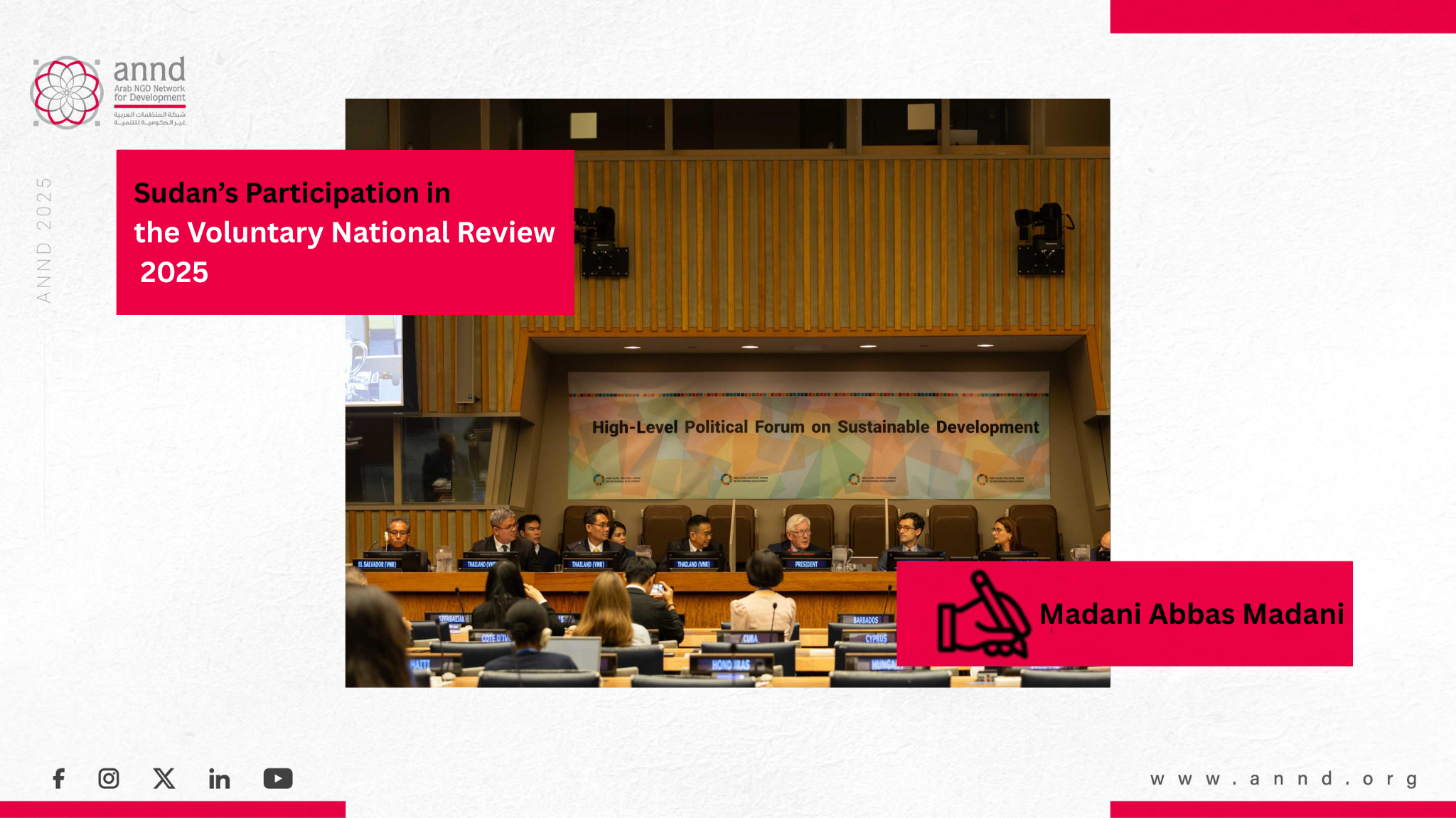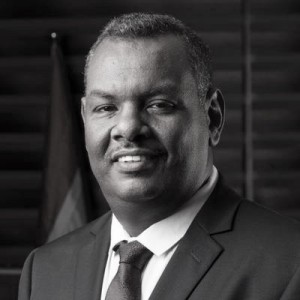
Sudan’s Participation in the Voluntary National Review - Madani Abbas Madani

Sudan’s Participation in the Voluntary
National Review - Madani Abbas Madani
Introduction
This article discusses the impact of the
general political context on Sudan’s participation in the voluntary review
related to the implementation of the Sustainable Development Goals from several
angles. It focuses on the most important main political variables affecting it,
with greater focus on the period of the ongoing war in Sudan since 2023. It
also addresses the challenges that obstruct the preparation of a report that
reflects the situations accurately, along with the remedies that can contribute
in the future to preparing a report that correctly expresses the progress
achieved or the stumbling in the path of achieving the Sustainable Development
Goals in Sudan.
Between the Revolution and the War
Sudan witnessed during the last seven years
major political changes, represented in the outbreak of the December 2018
revolution that toppled Al-Bashir after a rule that lasted thirty years, and
what followed it of the formation of a transitional government that continued
until October 2021, when a military coup took place followed by the outbreak of
the Sudanese war in April 2023.
The transitional period, which extended for
two years, witnessed wide civil activity and a better space for the work of
civil society, along with greater attention to the developmental issue,
considering that the economic factor was among the most prominent motivators of
the Sudanese revolution. The transitional government also adopted the concept
of the “democratic developmental state” and achieved accomplishments in joining
the “HIPC Initiative” for debt relief, in addition to obtaining support from the
World Bank for the “Thamarat” project for social protection. Nevertheless, a
voluntary report on the Sustainable Development Goals was not prepared during
that period, but rather completed later in 2022.
As for after the coup of 25 October, the coup
government faced many difficulties in resuming the developmental agreements
that were concluded during the transitional period, in light of the absence of
international recognition and the political protests that continued until the
outbreak of the war in April 2023. And although Sudan prepared a report on the
course of implementing the Sustainable Development Goals, it was not completed
within a broad consultative framework with civil society, which began to be
subjected to restrictions after the coup.
With the outbreak of war on 15 April 2023,
Sudan witnessed radical political and economic changes. More than 30 million
Sudanese became in need of humanitarian assistance, and massive numbers of the
population fled to safer areas inside Sudan or to neighboring countries. The
number of refugees is estimated at more than three million people, while the
number of internally displaced exceeded nine million, more than the population
of Switzerland. Also, high rates of malnutrition spread in different states of
Sudan.
Economically, the war destroyed more than 75%
of the industrial infrastructure, and stopped more than 65% of agricultural
activity, in addition to the wide destruction in water and electricity
networks.
Challenges of Writing the Voluntary Report
- Division of control areas and stumbling
of government institutions’ work
The nature of the war between two military forces led to the emergence of
varying control areas, between the army and the Rapid Support Forces, including
pivotal states such as Khartoum and Al-Jazira, which are of economic importance
and population density. That affected the stability of health and development
services, and also limited the possibility of obtaining accurate data, making
reliance on reports of international organizations more credible than
government data.
- Militarization of the public space and
decline of the role of civil society
The war weakened civil activity in all areas, whether under army control or
Rapid Support control. The role of civil society organizations was confined to
relief work to a large extent, while their consultative roles with government
institutions declined, and their coordinating activity was mostly limited to
Sudanese organizations working abroad, especially in Kenya and Uganda. This
made their contribution in preparing the report weak, if not non-existent.
- War economy and change of priorities
The war led to the emergence of a war economy based on mobilizing resources to
support military operations, such as gold and various levies. In army areas
some government institutions continued partially, while they were absent in
Rapid Support areas. Most health institutions were disrupted, and their cadres
left their workplaces. As for education, some students returned to schools in
army areas after a stoppage that lasted more than a year, while students in
Rapid Support areas were deprived of sitting for the secondary certificate
examinations.
In light of these conditions, developmental
priorities declined, and it is not expected that preparing an honest report
about Sudan’s commitment to the Sustainable Development Goals would receive
sufficient attention.
- Weak international support
The coup of 25 October and then the outbreak of war weakened international
support for any projects of a developmental nature. And despite the enormity of
the humanitarian catastrophe, most of the support was limited to humanitarian
aid, which remains much less than the actual size of the need, weakening
Sudan’s ability to move forward in implementing the Sustainable Development
Goals or preparing accurate reports about them.
The
Way Forward
Despite the great challenges facing the
preparation of an accurate, transparent, and consultative voluntary report,
civil society has a pivotal role it can play, especially in providing accurate
information if it regains its monitoring networks related to following up on
the Sustainable Development Goals, through establishing an observatory or a
continuous monitoring mechanism that reflects the level of Sudan’s commitment
to implementing them. Strengthening mutual trust between civil society and the
responsible government institutions can also contribute to improving the
quality of future reports.
Conclusion
It is clear from the above that the
preparation of voluntary reports in Sudan faces challenges closely connected to
the political context, whether in terms of the efficiency of government bodies
in accessing accurate information, or in terms of weak funding, or the decline
of the role of civil society, along with the retreat of international support
connected to achieving the Sustainable Development Goals.
Nevertheless, civil society can still assume
a greater role in the future in preparing these reports and providing accurate
data, alongside regaining its position as a main consultative party with
government institutions, despite the existing political and security
challenges.
Recent publications

